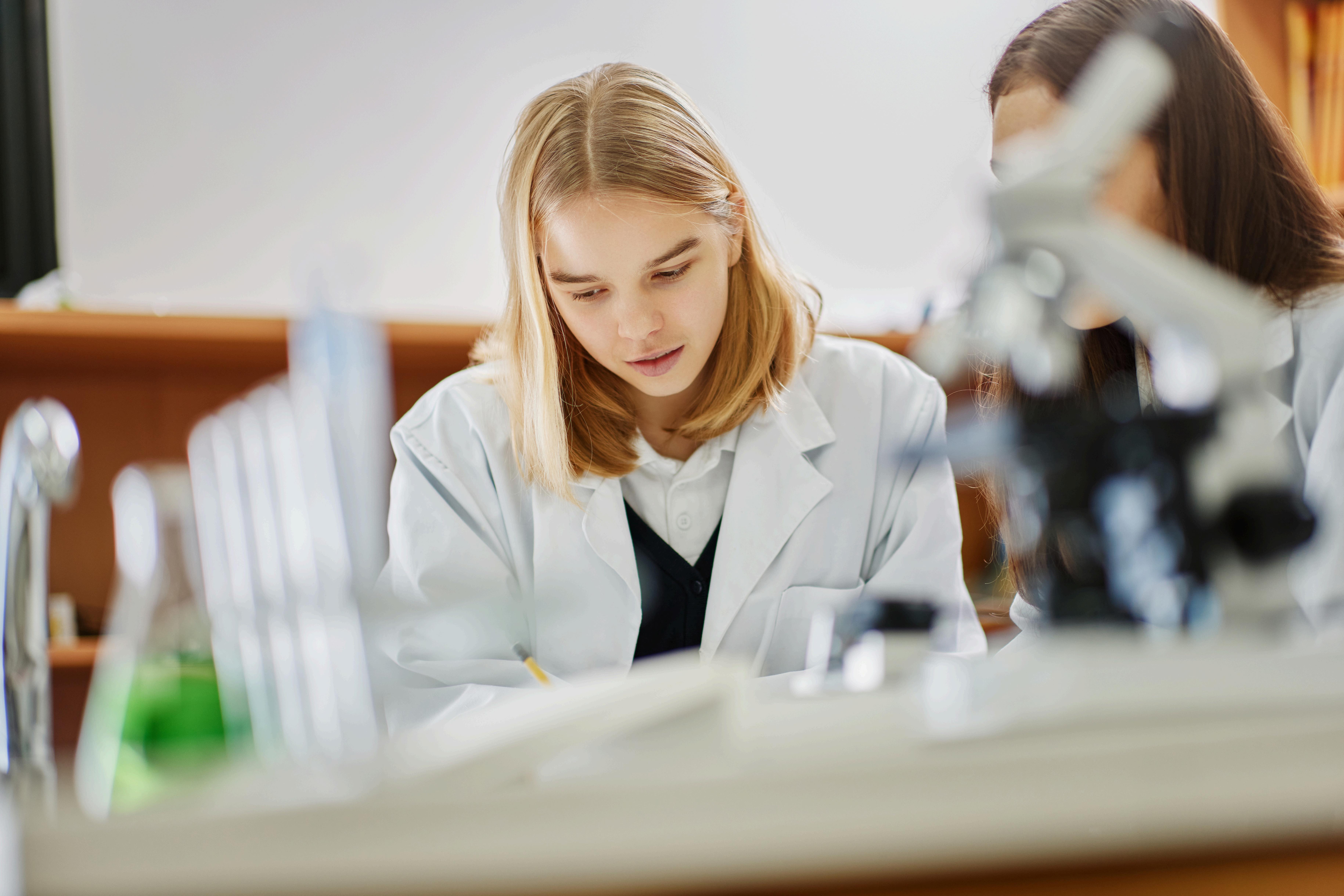
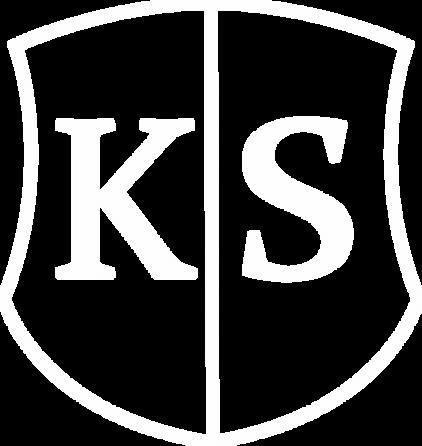



Knightsbridge School International Montenegro
YEAR 12 (2025-26) & YEAR 13 (2026-27)

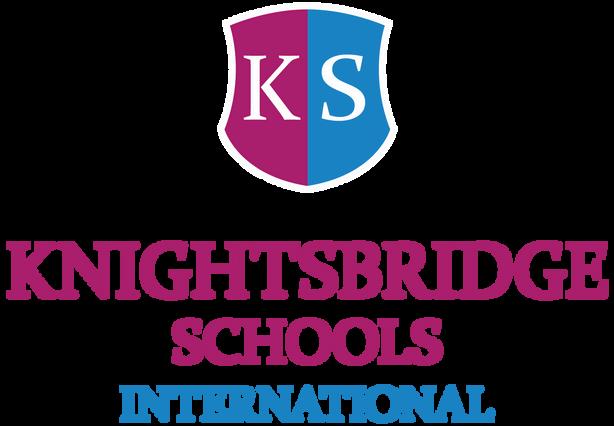



(aims, objectives and approach)
To cultivate the intellect, passion and imagination of our learners so that they are best prepared for the post-KSIM challenges and opportunities and are empowered to engage productively and creatively as global citizens who value and respect diversity.
(desired future position)
To educate a community of global citizens by providing them with opportunities to be all they can be and inspiring them to make a positive difference in a changing world
(values, beliefs and philosophy)
Our core values are the essential and enduring tenets of KSI Montenegro The guiding principles found in the KS Code and IB Learner Profile have a profound impact on how everyone thinks and acts and ensures the resiliency so necessary in our world today

KSI Montenegro (KSIM) offers a diverse range of diploma and course options so that each student can find the right pathway to find success and achieve their goals. We encourage each student to work together with their family, teachers and programme coordinators to identify the right diploma, courses and levels for them.
KSIM has a significant degree of freedom to deliver the International Baccalaureate (IB) Diploma Programme in order to meet its own mission and aims, develop the attributes of the learner profile and student approaches to learning, and undertake teaching and learning which allows students to achieve results and gain access to the next stage of their educational journey
At KSIM, we are committed to providing a diverse range of diploma and course options tailored to each student's unique strengths, passions, and aspirations We firmly believe that success in the IB Diploma Programme is not only about academic achievement but also about personal growth, holistic development, and realising full potential
Our approach to delivering the IB Diploma Programme is founded on the principles of collaboration and individualised support By working closely with their families, teachers, and programme coordinators to identify the most suitable diploma, courses, and levels that align with their academic interests and future aspirations.
We recognise that every student's journey is unique, and we are dedicated to fostering an environment where each individual can thrive and succeed
As you navigate through this handbook, you will discover detailed information about the IB Diploma Programme, including its core components, assessment criteria, and opportunities available at KSIM.
Whether you choose to explore the entire document or refer to specific sections as needed, we hope that this resource will serve as a valuable reference point and guide throughout your IB journey.
Thank you for entrusting us with your education and growth We are excited to embark on this transformative journey together and look forward to supporting you in achieving your academic and personal goals within the Diploma Programme at KSIM
Alex Peck DP Curriculum Coordinator

THE IB DP IS AN ACADEMICALLY CHALLENGING AND BALANCED PROGRAMME OF EDUCATION THAT ADDRESSES THE INTELLECTUAL, SOCIAL, EMOTIONAL AND PHYSICAL WELL-BEING OF STUDENTS, AND IS RESPECTED BY UNIVERSITIES ACROSS THE GLOBE.
At KSI Montenegro we are very proud of our established reputation as an IB World School The IBDP was designed for schools like ours – international, diverse, multilingual, and with high expectations You can read about the history and background of the IB Diploma at www.ibo.org/diploma/
The IBDP curriculum is made up of six subject groups and the DP core; comprising Theory of Knowledge (ToK), Creativity, Activity and Service (CAS) and the Extended Essay (EE).
The programme aims to develop students who have excellent breadth and depth of knowledge – students who flourish physically, intellectually, emotionally and ethically IB Diploma students reflect on the nature of knowledge, complete independent research, and undertake projects that develop personal capabilities, build human potential, and enhance quality of life and the realisation of dreams and aspirations Taking part and developing community service and social responsibility is also a core element of any IB programme
Throughout Europe, in the United States, and around the world, the IB Diploma Programme is widely recognised and
accepted as the ‘gold standard’ when it comes to preparing for a successful transition to higher education, as it: is challenging and offer a global perspective; is an integrated programme; is interdisciplinary; develops extended writing skills; includes the Extended Essay as an independent project developing inquiry, research, independent study and extended writing skills; develops critical analysis through its Theory of Knowledge course; develops student’s affective skills such as resilience, time management and perseverance
The IB Diploma Programme is designed as an academically challenging and balanced programme of education with final examinations that prepare students between the ages of 16 to 19, for success at university and life beyond.
Please note that in order to earn the IB Diploma, students must take at least 3 of their 6 subjects at Higher Level, successfully complete the DP Core and meet a number of final diploma requirements including earning a minimum of 24 points


THE KSI DIPLOMA IS A HIGH SCHOOL DIPLOMA WHICH OFFERS THE BREADTH OF THE IB DIPLOMA PROGRAMME, BUT WITH GREATER FLEXIBILITY FOR STUDENTS TO STUDY THEIR PREFERRED SUBJECTS AT THE LEVEL THAT IS RIGHT FOR THEM.
In addition to the IB Diploma, KSIM offers a fully recognised High School Diploma All students who take the IB Diploma are automatically and simultaneously following the KSI High School Diploma The IB Diploma and KSI Diploma are two separate qualifications, with the IB Diploma being a more demanding programme; students who successfully complete it are also awarded a KSI Diploma.
However, several students each year choose to focus their efforts on achieving the KSI Diploma only, rather than both qualifications simultaneously. Achieving greater success with a reduced range of courses that meets the requirements of the KSI Diploma is the correct choice for a number of our students
As in the IB Diploma, students study subjects from 5-6 groups including languages, humanities, sciences, mathematics and the arts All students following the KSI Diploma programme also study Theory of Knowledge (ToK) and
complete a portfolio of Creativity, Activity and Service (CAS) experiences Whereas the IB Diploma requires students to take at least three subjects at Higher Level, students taking the KSI Diploma can ‘mix and match’ the course levels, with the option to take IB certificates in some or all subjects, or sit adapted assessment tests.
KSI Diplomas, both with and without IB Certificates, are accepted by a wide range Universities, including a number of USaffiliated universities in Europe. KSI students with the KSI Diploma have secured places at a range of European Universities including, most recently, Webster University, St Louis University, and RIT For students interested in studying in the UK, a foundation programme may be necessary after graduating with a KSI Diploma
In order to earn the KSI Diploma, students must pass all courses (a maximum of two 2s may appear on a student’s transcript) and meet the CAS requirements

Like comparable high school diplomas, the KSI Diploma requires students to earn credits across four years from Years 10 to 13
Therefore, in order to be eligible to move forward with the KSI Diploma in Years 12, no more than two grades of 2 may appear on a students’ final reports issued in Years 10 and 11

The IB Diploma is a highly rigorous programme best suited to students with a passion for learning, secure level of English, and strong academic record
In order to secure a place on the IB Diploma programme students must:
Earn a minimum final average of 5 in their MYP subjects in Year 11 1
Complete the Personal Project with a minimum grade of 4 2.
Have a minimum Oxford language level of B1 3.
Consistency in honouring KSIM and IB’s Academic Honesty expectations 4.
Students not already attending at KSI Montenegro may enrol in either Diploma Programme (spaces permitting) for Year 12, and study in areas of interest and ability.
Non-KSIM candidates for the KSI and IB Diploma Programmes will have successfully completed Year 11 (MYP 5) or the equivalent, and have satisfactory grades in the subject areas they intend to select for the Diploma Programme In addition to English (B1 minimum), students must have a background in, and be prepared to take a course in, one other language They must also demonstrate a positive attitude and work ethic
BOTHTHEIBDIPLOMAANDKSIDIPLOMAAREPRESENTEDAS SIXACADEMICAREASENCLOSINGACENTRALCORE.THIS ENCOURAGESTHECONCURRENTSTUDYOFABROADRANGE OFACADEMICAREAS.
two modern languages (or a modern language and a classical language)
An Individuals and Societies (humanities) or social science subject an experimental science mathematics one of the creative arts (or additional subject from another group)
In each of the academic areas, students have flexibility in making their own choices, which means they can choose subjects that particularly interest them and/or that they may wish to study further at university.
Students are required to choose one subject from each of the six academic areas, although they can, instead of an arts subject, choose two subjects from another area For the IB Diploma, three subjects must be taken at Higher Level (HL), and the others are taken at Standard Level (SL), though a small minority of IB Diploma students opt to study four subjects at higher level
The IB recommends 240 teaching hours for HL subjects and 150 hours for SL Subjects at HL are studied in greater depth and breadth than at SL At both levels, many skills are developed, especially those of critical thinking and analysis At the end of the course, students’ abilities are
measured by means of external assessments, with subjects also containing some element of coursework assessed by teachers, and moderated by the IB.
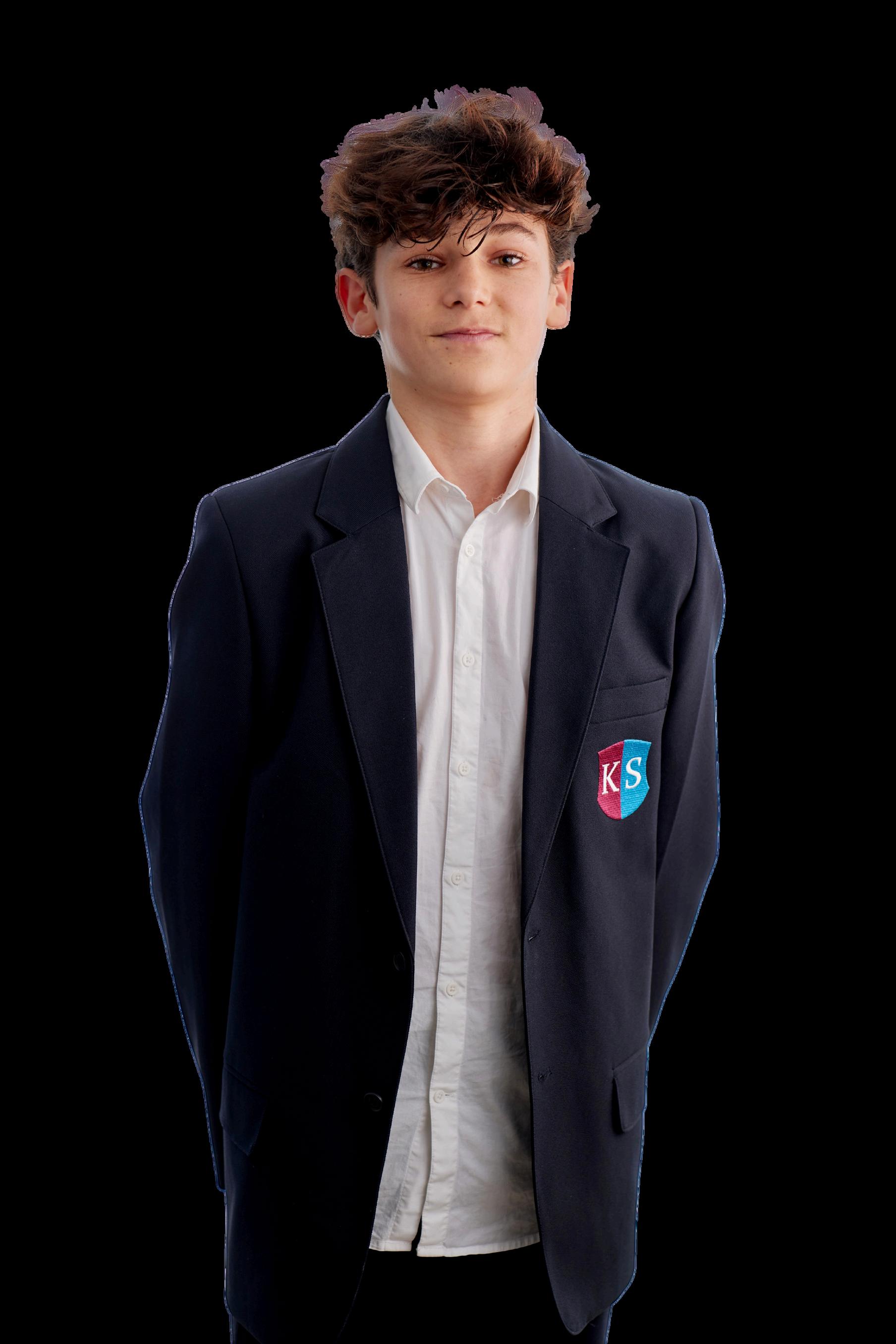
To study the full IB Diploma at KSIM, you need to select:
• 1 subject at least from each of groups 1, 3, 4 and 5
• Either another language from group 1 or a language from group 2
• One additional subject from Groups 1, 2, 3, 4 or 6 (not group 5).
• The ‘Core elements’ of Theory of Knowledge (ToK), Extended Essay and Creativity, Activity, Service (CAS) are compulsory for all IB Diploma students.
From the subjects you chose, you must study:
• At least 3 at Higher Level (you may study 4)
• 3 at Standard Level (2 if you study 4 HL)
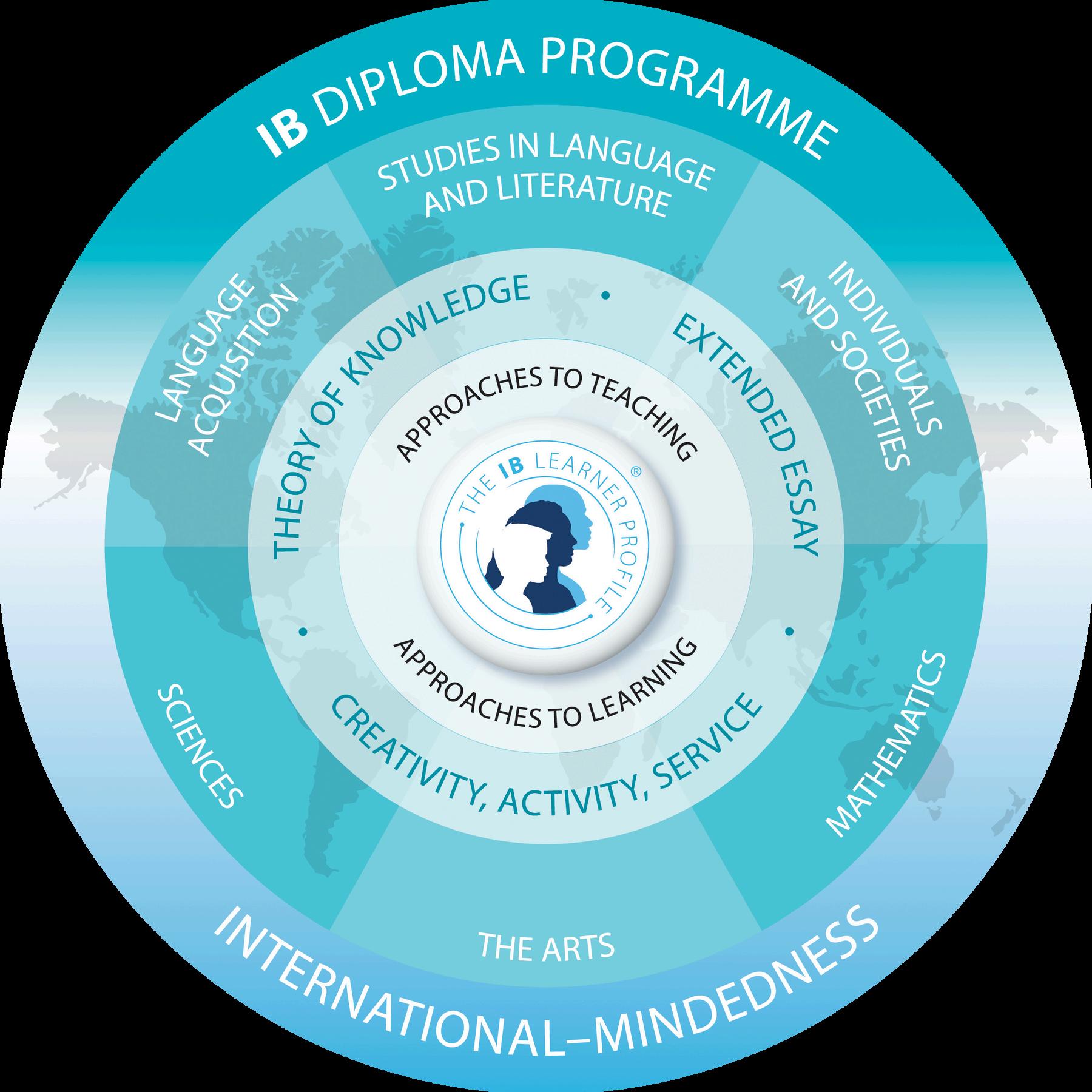


To study the KSI Diploma, you need to select:
• 1 subject at least from each of groups 1, 3, 4 and 5
• Either another language from group 1 or a language from group 2
• One additional subject from Groups 1, 2, 3, 4 or 6 (not group 5).
• The ‘Core elements’ of Theory of Knowledge (TOK), and Creativity, Activity, Service (CAS) The Extended Essay is not compulsory for KSI Diploma students
You also have the option to take an IB Standard Level or Higher Level Certificate in any of your courses, though this is not required for the KSI Diploma

Class of 2027 (2025 - 2027)
1
2
Studies in Language & Literature
English Language and Literature
Serbian Literature
SSST (School Supported Self Taught) Literature
Language Acquisition
English Language B
French Language B *
French Language ab initio *
German Language B
German Language ab initio
Individuals and Societies
3
Business Management
Environmental Systems and Societies (ES&S)
Sports, Exercise and Health Science
DP Core
Theory of Knowledge (ToK)
Creativity, Activity & Service (CAS)
Extended Essay (EE)
* This subject will be offered as a KSIM taught course based on sufficient student interest and enrolment
Students who wish to enrol in an International Baccalaureate (IB) course that is not available at KSI Montenegro may explore the option of taking it through an IBapproved online provider called Pamoja.
For students at KSI, there is also the opportunity to pursue a course with Pamoja, which is the sole online course provider authorised by the IB Instruction and learning take place via online platforms managed by Pamoja The cost for Pamoja courses is approximately €1400 per year and is the responsibility of the parents.
While students are encouraged to primarily engage in six courses facilitated by KSIM teachers, they may consider taking one course through Pamoja if necessary However, taking multiple Pamoja courses is strongly discouraged, and parental permission is required for all Pamoja courses
English Language and Literature
Serbian Literature
SSST (School Supported Self Taught) Literature
Designed to give students an in-depth understanding of both English language and literature. This course will teach students how to interpret and analyse texts from a variety of perspectives and to better understand the connections between language, literature, and culture.
Through the study of literary works, students will become familiar with a variety of literary forms and styles, and will be able to develop their own critical and creative approaches to reading In addition, the course will focus on the development of language skills such as writing, editing, and critical thinking The course will also provide an opportunity for students to explore and discuss current issues in language and literature, and how these topics relate to their own lives The combination of language and literature skills will help students gain an appreciation of how language is used to express ideas and how literature can be used to explore and interpret the world
Prerequisite: Native or near native English language proficiency
An intensive two-year course designed for the student with a definite inclination towards the study of literature. The course is for motivated native speakers of Serbian (Montenegrin) or students with near-native speaker fluency.
Throughout the course, students develop their analytical and critical writing and speaking skills Students study works from different genres and places, while some works are read in translation The course is built on three areas of exploration: Reader, Writer, Text; Intertextuality; Time and Space Through their study of literary texts, students are encouraged to appreciate the artistry of literature, and to develop the ability to reflect critically on their reading
This course focuses on the exploration of the art of literary texts - novels, plays, poetry, non-fiction, and things in between - with the goal of understanding how great writers create extraordinary effects and help shape human experience Close analysis of authorial technique, analytical and logical method, and the development of oral and written expression, comprise the major academic skills taught in the class Higher Level students are required to study 13 texts, and are expected to show a deeper understanding of content and writers’ techniques than Standard Level students, who study 9 texts All students will be required to consider some texts in terms of how they address global issues, and the final assessments will include an individual oral examination, as well as written papers Students at Higher Level are also required to write a 1,200 –1,500 word formal essay which develops a particular line of inquiry of their own choice regarding material from their course
Prerequisite: Native or near native Serbian (Montenegrin) language proficiency
A two year course requiring the collaboration of students, parents, tutors, the DP Coordinator, and the supervisor.
School Supported Self-Taught (SSST) students follow the same programme as other Language A students, but the difference is the necessity for a tutor/mentor (with teaching experience, preferably with IB experience), and the inherent independent nature of a “self-taught” course Students are required to meet or check in with the course supervisor every week, and study independently, allotting appropriate time on their own and with their tutor/mentor to the reading, researching, and assessments related to the texts
Tutors can assist with the selection of texts, and students will be provided with guidance regarding course expectations and assessments by the Self-Taught Supervisor Tutors should give feedback on assessments based on the IB criteria, and students will be awarded a grade of PASS or FAIL as determined by the supervisor, taking into account the tutor recommendation as well as the progress/completion of assignments All final grades for the course, however, will be established through external assessments by IB examiners given in the spring of Year 13
Prerequisite: Native or near native Mother Tongue language proficiency, history of mother tongue language and literature instruction, and demonstrated success working independently
English Language B
French Language B
French ab initio
German Language B
German ab initio
This course is designed to provide students with the necessary skills to enable them to communicate successfully in an environment where the English is spoken.
English Language B is a language acquisition course designed for students with some previous experience of the language Students further develop their ability to communicate through the study of language, themes and texts There are five prescribed themes: identities, experiences, human ingenuity, social organisation and sharing the planet Both SL and HL students learn to communicate in the language in familiar and unfamiliar contexts The distinction between SL and HL can be seen in the level of competency the student is expected to develop in receptive, productive and interactive skills
Atwoyearcoursethatisfocusedonlanguageacquisitionanddevelopmentof languageskillsofspeaking,writing,readingandlistening.
Theselanguageskillsshouldbedevelopedthroughthestudyanduseofarangeof writtenandspokenmaterialSuchmaterialwillextendfromeverydayoralexchangesto literarytexts,andarerelatedtothecultureconcerned.Thematerialischosento developstudents’powerofexpressioninbothoralandwrittencommunication,to promotetheabilitytorespondtothelanguagedemandsoftransactionalandsocial contacts,tohelpstudentsgaininsightsintohowusersofotherlanguagesthink,aswell astoprovideenjoymentandintellectualstimulation
Prerequisite:successfulcompletionofPhase3inMYPFrench Pleasenote,thissubjectwillbeofferedasaKSIMtaughtcoursewithsufficientstudentinterestand enrolment
A course recommended for students who have little or no experience of learning French. This course is designed to be challenging, engaging and a positive educational experience for each student.
French ab initio will enable students to develop their receptive, productive and interactive skills; learn with students and teachers from around the world; and function successfully in a French-speaking environment
Please note, this subject will be offered as a KSIM taught course with sufficient student interest and enrolment.
A course recommended for students who have little or no experience of learning German. This course is designed to be challenging, engaging and a positive educational experience for each student.
German ab initio will enable students to develop their receptive, productive and interactive skills; learn with students and teachers from around the world; and function successfully in a German-speaking environment.
A course designed to provide an introduction to the German language and culture Students will gain an understanding of the fundamentals of the language, including grammar, pronunciation, and basic vocabulary
Through interactive activities, such as conversation and writing exercises, students will learn to communicate in German in a variety of contexts They will also become familiar with cultural topics such as German literature, society, and customs Additionally, they will explore the history of the German language and its influence on other languages The course also encourages students to think critically, develop independent research skills, and work collaboratively on tasks By the end of the course, students will be able to express themselves in German and will have a greater appreciation of German culture.
Business Management
Environmental Systems and Societies (ES&S)
An internationally recognised course focusing on the development of critical thinking, problem solving and communication skills related to the business world.
The course provides students with a comprehensive understanding of business principles, strategies and processes, and the ability to apply them in real-world contexts. The curriculum covers topics such as entrepreneurship, marketing, finance, accounting, operations management, information systems, human resource management and organisational behaviour. It also provides students with the skills to analyse and interpret financial statements, understand different legal and ethical issues, and develop effective strategies for managing change. As part of the programme, students will collaborate on projects, develop research skills and write business plans. Upon completion of the course, students will be well-equipped to make informed decisions, solve complex business problems and excel in their chosen field.
Through studying Environmental Systems and Societies (ES&S) students will be provided with a coherent perspective of the interrelationships between environmental systems and societies; one that enables them to adopt an informed personal response to the wide range of pressing environmental issues.
The teaching approach is such that students are allowed to evaluate the scientific, ethical and socio-political aspects of issues ES&S is an interdisciplinary course so students can study this course and have it count as either an I&S or a Science course, or both This gives students the opportunity to study (an) additional subject(s) from any group The course aims to foster an international perspective, awareness of local and global environmental concerns and an understanding of the scientific methods, a course that shares these aims would be good preparation During the course, students will study eight different topics An important aspect of the ES&S course is hands-on work in the laboratory and/or out in the field
As one of the three natural sciences in the IB DP, Biology is primarily concerned with the study of life and living systems. Biologists attempt to make sense of the world through a variety of approaches and techniques, controlled experimentation and collaboration between scientists.
Through the study of DP Biology, students are empowered to make sense of living systems through unifying themes By providing opportunities for students to explore conceptual frameworks, they are better able to develop understanding and awareness of the living world around them This is carried further through a study of interactions at different levels of biological organisation, from molecules and cells to ecosystems and the biosphere Integral to the student experience of the DP Biology course is the learning that takes place through scientific inquiry With an emphasis on experimental work, teachers provide students with opportunities to ask questions, design experiments, collect and analyse data, collaborate with peers, and reflect, evaluate and communicate their findings
DP Biology enables students to constructively engage with topical scientific issues. Students examine scientific knowledge claims in a real-world context, fostering interest and curiosity. By exploring the subject, they develop understandings, skills and techniques which can be applied across their studies and beyond.
Physics is concerned with an attempt to understand the natural world; from determining the nature of the atom to finding patterns in the structure of the universe. It is the search for answers from how the universe exploded into life to the nature of time itself.
Observations are essential to the very core of the subject Models are developed to try to understand observations, and these themselves can become theories that attempt to explain the observations Besides leading to a better understanding of the natural world, physics gives us the ability to alter our environments DP physics enables students to constructively engage with topical scientific issues
Students examine scientific knowledge claims in a real-world context, fostering interest and curiosity. By exploring the subject, they develop understandings, skills and techniques which can be applied across their studies and beyond. Integral to the student experience of the DP Physics course is the learning that takes place through scientific inquiry both in the classroom and the laboratory.
SEHS is primarily concerned with the scientific study of human physiology, biomechanics and psychology. Scientists working in these fields attempt to make sense of human physical and mental health and performance through a variety of approaches and techniques, controlled experimentation, and collaboration with other researchers.
DP SEHS enables students to engage constructively with topical scientific issues Students examine scientific knowledge claims in a real-world context, fostering interest and curiosity. By exploring the subject, they develop understandings, skills and techniques which can be applied across their studies and beyond. The course is organised under three main themes: exercise physiology and nutrition of the human body; biomechanics; sports psychology and motor learning. These themes are distinct, but also share many overlapping features; studying the similarities and connections between them is a central component of the course.
Integral to the student experience of the DP SEHS course is the learning that takes place through scientific inquiry, both in the classroom and in field work or the laboratory. With an emphasis on experimental work, teachers provide students with opportunities to ask questions, design experiments, collect and analyse data, collaborate with peers, and reflect, evaluate and communicate their findings.
Mathematics: Analysis & Approaches SL & HL
Mathematics: Analysis and Approaches, is a course that recognises the need for analytical expertise in a world where innovation is increasingly dependent on a deep understanding of mathematics.
The focus is on developing important mathematical concepts in a comprehensible, coherent and rigorous way, achieved by a carefully balanced approach. Students are encouraged to apply their mathematical knowledge to solve abstract problems as well as those set in a variety of meaningful contexts.
The course has a strong emphasis on the ability to construct, communicate and justify correct mathematical arguments Students should expect to develop insight into mathematical form and structure, and should be intellectually equipped to appreciate the links between concepts in different topic areas Students are also encouraged to develop the skills needed to continue their mathematical growth in other learning environments
The internally assessed exploration allows students to develop independence in mathematical learning and follow an area of personal interest Throughout the course students are encouraged to take a considered approach to various mathematical activities and to explore different mathematical ideas
The IBDP Visual Arts course encourages students to challenge their own creative and cultural expectations and boundaries. It is a thought-provoking course in which students develop analytical skills in problem-solving and divergent thinking, while working towards technical proficiency and confidence as art-makers.
In addition to exploring and comparing visual arts from different perspectives and in different contexts, students are expected to engage in, experiment with and critically reflect upon a wide range of contemporary practices and media. The course is designed for students who want to go on to further study of visual arts in higher education as well as for those who are seeking lifelong enrichment through visual arts
Through the study of diverse art forms, students will analyse and critically evaluate art works, explore the creative process, and investigate the role of the arts in society In addition to the formal components of the course, students will engage in studio activities to explore their own creativity, experiment with a variety of techniques, and develop their own personal creative expression Students will be encouraged to think critically and develop an appreciation for the visual arts as they build a portfolio of their work for submission to IB and exhibition at KSIM; in doing so, students should be empowered to become autonomous, informed and skilled visual artists

French Language B
2
Spanish Language B
Spanish ab initio
Mandarin ab initio
3
Digital Society Economics Philosophy Psychology
6 Film
A two year course available via Pamoja. It is focused on language acquisition and development of language skills of speaking, writing, reading and listening. These language skills should be developed through the study and use of a range of written and spoken material. Such material will extend from everyday oral exchanges to literary texts, and are related to the culture concerned. The material is chosen to develop students’ power of expression in both oral and written communication, to promote the ability to respond to the language demands of transactional and social contacts, to help students gain insights into how users of other languages think, as well as to provide enjoyment and intellectual stimulation. Prerequisite: successful completion of Phase 3 in MYP Spanish
IB Spanish ab initio is a course for students with no previous formal experience of learning Spanish It will enable them to communicate with people from a new culture and make the most of any time they spend in Spain and Latin America
IB Mandarin ab initio is an innovative course for students with no previous formal experience of learning Mandarin or for those students with very limited exposure It will enable them to communicate with people from a new culture and make a success of their time spent in a part of the world where Mandarin is commonly spoken
The course is designed for young people interested in exploring the impact and importance of digital systems and technologies in the contemporary world Digital society is intended to appeal to a broad range of teachers in the social studies, media, humanities, IT and related subject areas
IIB Economics is the study of economic theory and its applications in the world today Students interpret economic data and statistics, apply relevant theory, and demonstrate this knowledge using written prose, diagrams and economic terminology Taking IB Economics online will enable students to develop a critical understanding of a range of economic theories, models, ideas and tools in the areas of microeconomics, macroeconomics and the global economy; learn real world applications of economic theory, and meet and study with students and teachers from around the world
IB Philosophy SL is a course that tackles questions important to humanity For example, what is it to be a human being and how do I know what is the right thing to do? Students learn how to think systematically, analyse arguments, and study philosophical themes They also look at problems facing contemporary society, including those resulting from increased international interaction
IIB Psychology is the systematic study of behaviour and mental processes Psychology has a variety of research designs and applications, and provides a unique approach to understanding modern society Taking IB Psychology online will enable students to access a rich source of information about factors that influence human behaviour; develop their understanding of people in general and themselves in particular; and acquire effective work habits to regulate their own learning.
IA course available via Pamoja that develops students’ skills so that they become adept in interpreting and making film texts Through the analysis of film texts and exercises in film-making, the course explores film history and theory It also develops students’ critical abilities, enabling them to appreciate the variety of cultural and historical perspectives in film. Students may create a one-minute video without dialogue that includes at least two characters and a dinner table; create a Twilight Zone film where a character transitions between different places and time periods that are unconnected in reality; recreate a scene from a favourite film; film the same location twice (the second time light and design the location to recreate a place typical of a chosen genre of film); record an analysis of how film language creates meaning in a five-minute extract from a film; create a storyboard; or create a map showing camera placement, lighting, and actor movement in a scene.
A distinctive feature of the IB Diploma is the DP Core, consisting of three components. DP Core is studied alongside the six subjects chosen by the student and completes the full Diploma. Candidates must complete all of the requirements for the EE, CAS and TOK.
TOK and EE components are awarded individual grades and, collectively, can contribute up to 3 additional points towards the overall Diploma score Failing conditions that will prevent a student from being awarded a diploma, regardless of points received, are non-completion of CAS and gaining below a D in either EE and TOK.
Theory of Knowledge (TOK) concerns the ways in which we know, the extent and limitations of our knowledge, and the different kinds of knowledge produced by different subject methodologies. The course is taught in the regular schedule by a team of teachers with different subject
The Extended Essay (EE) is an opportunity to deepen and enrich your understanding of a subject – or, in the case of a World Studies essay, to explore the ways in which multiple subjects can illuminate a question
Creativity, Action and Service (CAS) is a way for you to use your learning in the IB DP to make a difference – both to yourself, to your community , and to the world at large. You will be encouraged to
specialisms Theory of Knowledge is not a philosophy course in the traditional sense – although it shares some features of philosophy – but is a space in the programme in which students are encouraged to reflect on their own learning. Theory of knowledge is assessed through written essays, a presentation, and for semester reports through a reflective journal.
of global importance. You choose the question and then work on the essay in your own time, with guidance and advice from a teacher supervisor. The essay is a major piece of writing – up to 4000 words long – and a real chance to express yourself!
choose and then develop your own projects – creative (for example, learning to play an instrument, or performing in a school drama production), active (for example, staying fit or playing sport), or to help others (for example, through charity work or volunteering).
If you are pursuing the IB Diploma you will be assessed against IB standards in your subject from day one of your programme.


There are a number of criteria that a student must meet to be awarded the IB Diploma.
The following conditions mean a student will not qualify for the award of the IB Diploma:
CAS requirements have not been met
Candidate’s total points are fewer than 24
An “N” has been given for TOK, extended essay or for a contributing subject

A grade E has been awarded for one or both of TOK and the extended essay. There is a grade 1 awarded in a subject/ level.
Grade 2 has been awarded three or more times (SL or HL).
Grade 3 or below has been awarded four or more times (SL or HL).
Candidate has gained fewer than 12 points on HL subjects (for candidates who register for four HL subjects, the three highest grades count)
Candidate has gained fewer than 9 points on SL subjects (candidates who register for two SL subjects must gain at least 5 points at SL)
If you are pursuing the IB Diploma you will be assessed against IB standards in your subject from day one of your programme
If you are following the KSI Diploma pathway you will be assessed against IB Standards only in subjects in which you are earning an IB Certificate If you are not pursuing an IB Certificate in a subject you may sit school-based assessments which differ from IB assessments
Coursework refers generally to any work that you complete during the two years of your IBDP, that is formally graded and, as already stated, will contribute to your final IBDP grade
Coursework is sometimes graded by an external IB Examiner, and so must be sent to the IB during Year 13 Some coursework is ‘internally assessed,’ which means that your teacher grades it; however, a sample of their grading is then sent to the IB in a process called moderation. It is important to plan your time carefully and make sure you meet all the deadlines for coursework.
Most of the deadlines fall in Year 13 as this is when you have learnt the most and so can demonstrate your highest levels of achievement.
The final DP examinations which form part of external assessment take place in April and May of Year 13 These typically constitute 50 to 80 percent of a student’s final grade in each subject and require thorough preparation
Most IB courses will be assessed by 2-3 final exams which, together with coursework, make up the final grade In order to perform well in the final exams,
students should engage consistently with the course and prepare well for all assessments over the whole two years Of course, an extended period of thorough revision and practice will also be essential for success in the final exams
In order to practise for the final exams, and gain a sense of their progress, all students sit mock exams in Year 13 (January) Mock exams are designed to closely mirror the experience of ‘real’ IB exams
IB Diploma Programme results are usually released to the school on 5 July of Year 13, with students able to access them online the following day. A final official IB Diploma Programme certificate will be sent by the IBO in September.
When students do not achieve the results they had hoped for, the early registration deadline for retaking examinations in the November exam session is 1-2 weeks after the release of examination results in July
This means that students must make a decision about resits very quickly after receiving results and then contact the Diploma Coordinator Late registrations are also available until October but at a higher cost


Teachers regularly stress the importance of academic integrity. It is essential that students are aware of KSIM’s expectations of academic integrity and take care to avoid plagiarism and other forms of academic misconduct.
KSI Montenegro subscribes to, and adopts the IB’s definition of academic misconduct, which is any “behaviour (whether deliberate or inadvertent) that results in, or may result in, the candidate or any other candidate gaining an unfair advantage in one or more components of assessment. Behaviour that may disadvantage another candidate is also regarded as academic misconduct”
When a student properly acknowledges the contributions to knowledge made by other people, they are showing respect for their work, and they are giving credit where credit is due. They are not misleading the reader to believe that others’ work is solely their own.
The IB offers the following definitions of types of academic misconduct (IBO 2014):
plagiarism: this is defined as the representation, intentionally or unintentionally, of the ideas, words or work of another person without proper, clear and explicit acknowledgment;
collusion: this is defined as supporting academic misconduct by another candidate, e g allowing one ’ s work to be copied or submitted for assessment by another Group work is sometimes an important part of producing assessments in a subject, for example, collecting shared data in the sciences However, collusion happens when a candidate goes beyond collaboration: for example, to submit the same lab report as another student
duplication of work: this is defined as the presentation of the same work for different assessment components and/or DP core requirements;
misconduct during an IB examination: (for example, taking unauthorised material into an examination, behaviour that disrupts the examination or distracts other candidates, or communicating with another candidate);
unethical behaviour: such as the inclusion of inappropriate material in any assessment materials or the breach of ethical guidelines when conducting research;
any other behaviour that gains an unfair advantage for a candidate or that affects the results of another candidate (for example, falsifying a CAS record, disclosure of information to and receipt of information from candidates about the content of an examination paper within 24 hours after a written examination via any form of communication/media)
All work completed during an examination and then submitted for assessment, must be the authentic work of the candidate Any copying, collusion, plagiarism, reference to unauthorised material, or communication between candidates may constitute academic misconduct, resulting in appropriate action by the school and/ or the IB The impersonation of another candidate will be treated as academic misconduct
